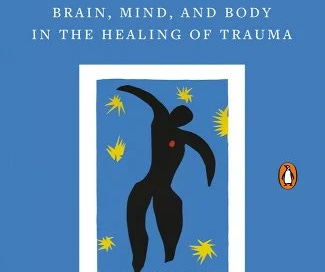Hello, lovelies! It’s the Wednesday morning after the mid-terms and as promised, we’re all still here! Hurray for that! Read to the end of this post for all the details about paid subscriptions, coming in two weeks!
I went to a physical therapist for the first time in graduate school, after I hurt my ankle sliding down a muddy incline behind a campus building. The doctor I went to didn’t know exactly what was the matter with my ankle, but sent me along to the physical therapist, a lovely gray-haired woman with a room in the basement of health services.
I’m the sort of person who waits as long as possible before going to the doctor, so maybe it was a few months I’d been dealing with the injury and impatient that it still wasn’t better (this was when I was young and expected things to heal quickly). The physical therapist put me on one of those balance balls, first on my healthy leg and then on the injured one.
“See how much harder it is to balance on the injured leg?” she asked. “You’ve been favoring the healthy leg and the other ankle got weak.”
I was amazed. Tangible proof that something was wrong. But also proof of an entire set of decisions my body had been making with very little input from my conscious mind. “That ankle hurts. Let’s avoid it,” my body had decided. Or maybe, “That ankle did hurt. Let’s keep that from happening again.”
The body remembers. It certainly remembers injuries, which I’ve been thinking about this week as I struggle with some back issues. If you’ve once had that searing, stabbing sensation that is your back seizing up, your body will be very reluctant to ever move in that particular way again. When I lift weights, it’s clear that my left arm is much weaker, the effects of a frozen shoulder I had several years ago now.
The body keeps a careful, detailed tally of physical pain. But the same is true for psychological and emotional pain. You only need to read the paradigm-shifting book, The Body Keeps the Score, to know that this is true.
Your body remembers the anniversary of things that were scary or traumatic. If one of your parents died at a certain age, your body will let you know when you’re getting close to that age yourself. When I was in junior high, a classmate was killed on my birthday and to this day, I feel uneasy as that date gets closer, even when I don’t remember why.
Your body is very invested in keeping you alive and remembering is an important part of that. As I’ve been dealing with back pain the last few days, I’ve tried to tell myself that pain is a reminder that I’m still in a body.1 Imperfectly, but that is the nature of being in a body, after all. It’s always imperfect. Uncomfortable to varying degrees. But here. Still. Moving very carefully. Being very gentle. Being very patient.
I’m still here, one fragile day after the next, thanking my body for its remembrance. Thanking it for its careful accounting and also giving my body—and myself—permission to move past those memories when the time is right.
The deal with paid subscriptions
Like I said on Monday, nothing you’re getting now will disappear if you decide not to go paid. You’ll still get the Monday posts, notes on the writing life (ramblings about what it means to be a writer) and this book (I read a book and tell you what was interesting about it).
Mini-writing courses and resources will be for paid subscribers only.
So, if you’re interested in getting some inside info on being a writer or the creative life more generally—stuff like a mini-guided course on developing a writing/creative habit or examples of book proposals and query letters—you should absolutely sign up for a paid subscription.
But even if you could care less about insider writer stuff, you might want a paid subscription because you believe that in the fucked-up capitalist system we’re living in, people should be paid for their writing. This is also a very valid reason to go paid.
PLUS, there are some other perks that come with paid subscriptions.
Yearly paid subscribers will get mentioned in the acknowledgements for my next book, which will probably be a sociology of sport textbook with SAGE Press.
Founding members will have characters named after them in my first novel or short story collection. Oh, when is your first novel or short story collection coming out, Robyn? I have no idea, but it will happen and when it does, there will be a character with your name or a name of your choosing in it.
So this is all to say—get ready! Get excited! And thanks, as always, for being here.
I think this is different from suggesting that pain exists so that we can learn from it. Pain exists because that’s the shit way the world was made and I have no idea if there’s a purpose or a lesson in it. I’m not interested as much in questions of why pain exists as much as I am in figuring out what to do about it. Accepting it rather than bemoaning it seems like a good first step for me, anyway.





You've captured something I think about often. I'm also aware of how well the body can work to protect. When I find myself slipping into depression , I can feel the fight in my body. The urge to move , to take a long walk, to feel my body working is so strong. I believe it is because the body knows what to do when my spirit can't.
And if I wanted to pay, where's the button telling me how to do that and the cost?